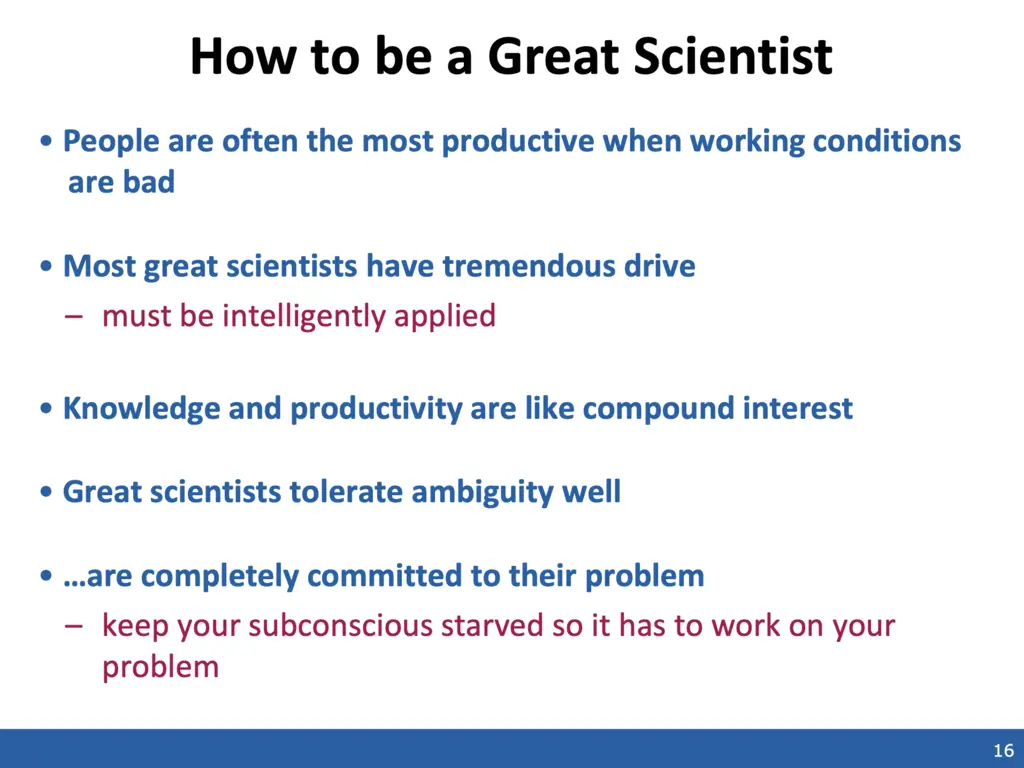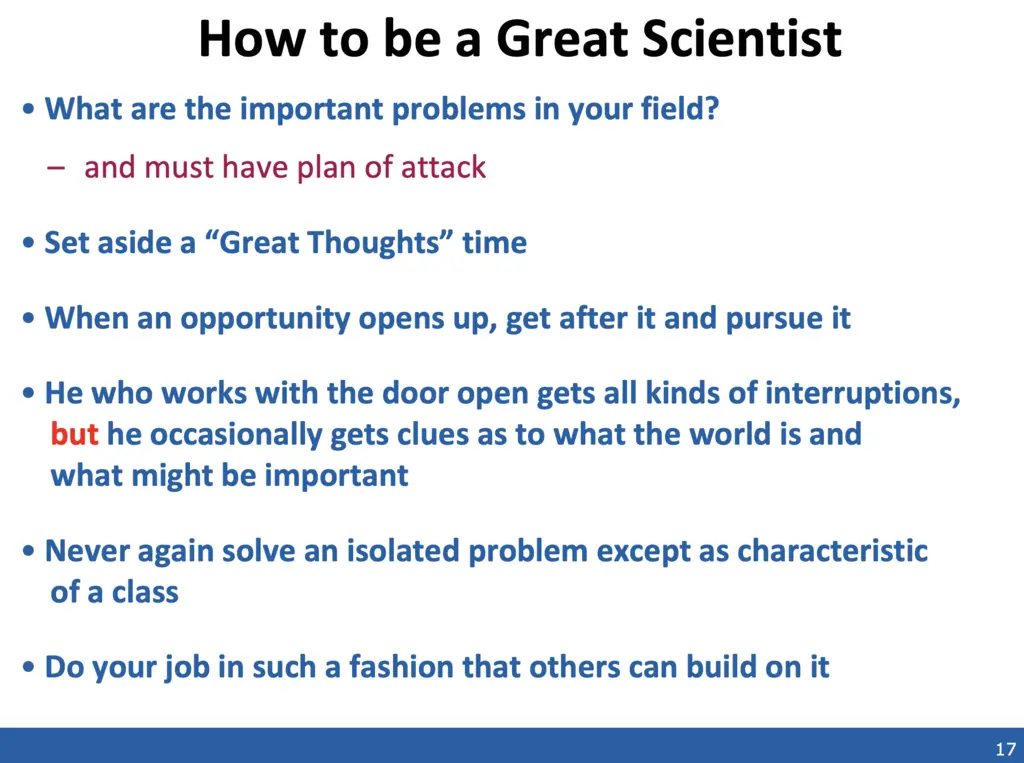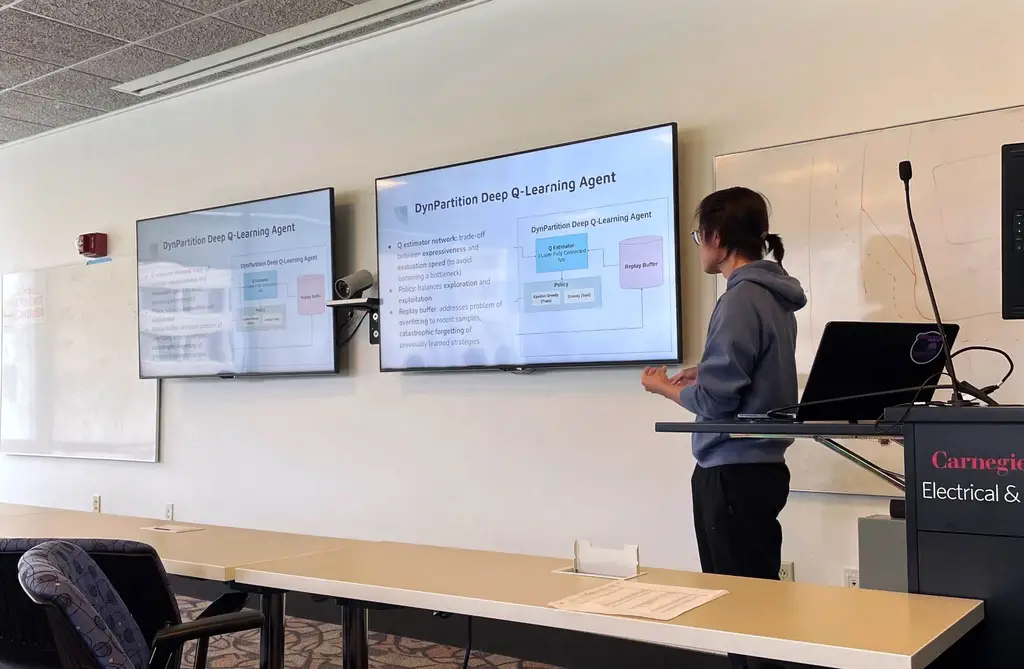CMU 15712 Advanced Operating Systems and Distributed Systems Course Review

This semester (Spring 2023), I took 15-712 Advanced Operating Systems and Distributed Systems under professor Phil Gibbons and his TA and also PhD advisee Val Choung.
This class exceeded my expectations significantly. I found it especially meaningful and apt since this was my last systems class before I graduate, and the topics and discussions from class helped to unify all the systems concepts that I had learnt from previous classes into a nice package informed by common underlying principles: from distributed systems, to networking, databases, filesystems, operating systems, and even machine learning systems.
The First Lecture
The first lecture went through 2 Wisdom Papers, which no one was expected to have read yet as it was the first class. You can refer to the slides here if you are curious.
The first paper, Mythical Man-Month: Essays on Software Engineering is a book by Turing-award winner Fred Brooks. It is about many of his observations and principles on software engineering based on his own vast experiences. What really brought it home to me was that a couple of them were also things that I had some suspicions about previously, but never really thought it was universally applicable, and thought they were simply artifacts of the way I approached things.
For instance, one of the principles is “Plan to Throw One Away”, meaning that one should first build a worthwhile system in a short amount of time, and then re-build a better second version with the benefit of hindsight. This is because one would end up having to re-build the system anyway after being confronted with change and feedback, and also due to the following observation on program maintenance:
“Program maintenance is an entropy-increasing process, and even its most skillful execution only delays the subsidence of the system into unfixable obsolescence”
This had many parallels with my own experiences. For instance, my group ended up having 4 major re-writes of our kernel during 15-410, and I also did a complete re-write of my CloudFS filesystem for my 18-746 project. Similarly, many of my internship projects were also re-writes and improvements on design of existing systems that had accumulated too much technical debt. It does seem a lot more reasonable to plan for this eventual change to begin with.
The paper also contained a lot of other great advice, such as the importance of conceptual integrity to separate architecture from implementation, structuring a team in a “surgical” fashion to drive software development where the best programmer leads the most critical development work like a surgeon and directs others on the other aspects, and of course the famous Brook’s law:
“Adding manpower to a late software project makes it later”
The second paper, You and Your Research by Richard Hamming (of Hamming code fame), talks about how to become a great scientist. The following two slides gives a good sense of the spirit of the paper:


I mention the first lecture and the two papers that were discussed here not simply because they were interesting, but because they helped to set the tone and expectations for the rest of the semester going forward. The message is clear: this is going to be a practical and useful class that will help you on your journey to becoming great systems designers and researchers.
Course Content
The class took us on a whirlwind tour through many SIGOPS Hall of Fame papers, which the award description states was “instituted in 2005 to recognize the most influential Operating Systems papers that were published at least ten years in the past”. Reading through the papers helped to consolidate a lot of the knowledge that I learned in previous systems classes, and it was cool to see how decades ago many of these ideas that were once unappreciated or heavily criticized now form the bedrock of many of the systems that we use today.
In addition to the Hall of Fame papers, there were also several relatively recent papers that the course staff thought were conceptually interesting and promising.
The following sections will go through each of the modules and the required papers that you will read (refer to the course website if you are also interested in the optional papers), and a short description of what the paper is about so you can get a pretty good sense of what is covered. A cool thing to note is that the scope of all the papers will touch almost all the systems classes offered at CMU.
Part 1: Concurrency, Ordering, Races
- Implementing Remote Procedure Calls (Birrell’84), SigOps HoF paper - introduced the now-standard design of RPC calls with interfaces and caller/callee stubs for distributed communication.
- Time, Clocks, and the Ordering of Events in a Distributed System (Lamport’78), SigOps HoF paper - introduced Lamport clocks, the foundation for ordering distributed systems today
- Distributed Snapshots: Determining Global States of Distributed Systems (Chandy’85), SigOps HoF paper - how to snapshot a consistent global state in a distributed system
- Efficient Scalable Thread-Safety-Violation Detection (Li’19), SOSP’19 best paper - using active testing to discover and reproduce concurrency bugs
Part 2: File Systems and Disks
- A Fast File System for UNIX (McKusick’84), SigOps HoF paper - addresses many of the problems of the original Unix filesystem by introducing the Fast File System (FFS), and many of its ideas are now staple in modern filesystems like the Linux
ext*filesystems - Scale and Performance in a Distributed File System (Howard’88), SigOps HoF paper - introduces the Andrew File System (AFS) that significantly improved on NFS in terms of scalability. AFS was developed at CMU and is still widely used today.
- The Design and Implementation of a Log-Structured File System (Rosenblum’92), SigOps HoF paper - introduced log-structured filesystems that support high write throughput which addresses the problem of disk traffic being dominated by slow writes on traditional filesystems
- A Case for Redundant Arrays of Inexpensive Disks (RAID) (Patterson’88), SigOps HoF paper - introduced RAID, solved problem of how to get cheap fault tolerance
Part 3: Transactions and Databases
- On Optimistic Methods for Concurrency Control (Kung’81), SigOps HoF paper - introduced optimistic concurrency control, now standard in many database environments with low contention and high throughput requirements
- Concurrency Control and Recovery (Franklin’97) - survey paper on concurrency control and recovering from crashes in database systems (write-ahead logging, ARIES)
Part 4: Fault Tolerance
- Paxos (Lamport’01), SigOps HoF paper - simplified version of his original theatrical The Part-Time Parliament paper that was mostly ignored, introduced how to get replicated logs among unreliable (but not Byzantine) nodes
- Practical Byzantine Fault Tolerance (Castro’99) - distributed consensus but in the presence of Byzantine faults (i.e a fraction of the nodes can collude and behave maliciously)
Part 5: OS Kernels and Virtual Machines
- Microkernels (Liedtke’95), SigOps HoF paper - the first demonstration of an efficient microkernel designed with a very extreme minimality principle, where as much OS functionality is moved outside of the microkernel as possible, including even its memory manager, pagers, device drivers, software TLBs, etc.
- seL4: Formal Verification of an OS Kernel (Klein’09), SigOps HoF paper - first paper to perform a formal, machine-checked verification of a microkernel using the Isabelle/HOL theorem prover
- Memory Resource Management in VMware ESX Server (Waldspurger’02), SigOps HoF paper - introduced many great ideas for hypervisor memory management, like memory ballooning, idle tax, and transparent page sharing that are now commonplace in modern virtual machines
- The Scalable Commutativity Rule: Designing Scalable Software for Multicore Processors (Clements’15), SOSP’13 best paper - addresses the problem of deciding whether there exists a scalable implementation (with respect to number of processors) of a program based on a restricted form of commutativity of the interfaces that it uses called SIM commutativity (State-dependent, Interface-based, Monotonic)
- The Multikernel: A new OS architecture for scalable multicore systems (Baumann’09), SigOps HoF paper - solves the problem of modern operating systems not being able to take advantage of the current trend of increasing core counts due to the inherent limitations of the shared-memory kernel design, by instead re-framing the OS as a distributed system split among different cores with event-driven execution, replicated state, and a hardware-neutral structure
Part 6: Big Data Systems
- Dynamo: Amazon’s Highly Available Key-value Store (DeCandia’07), SigOps HoF paper - the secret behind how Amazon can support very high availability with eventual consistency due to extreme business requirements (i.e users should never fail to add an item to their shopping carts), by incorporating established techniques like consistent hashing, sloppy quorums, gossip-based membership protocols, etc
- Spanner: Google’s Globally-Distributed Database (Corbett’12), SigOps HoF paper - built using lessons from Google Bigtable, Spanner powers Google as their globally replicated transactional database system with 5 nines of availability with several novel ideas like TrueTime to quantify uncertainty in wall clock time and distributed transactions
- Pollux: Co-adaptive Cluster Scheduling for Goodput-Optimized Deep Learning (Qiao’21), OSDI’21 best paper - introduces a new notion of goodput that combines throughput and statistical efficiency to evaluate the performance of schedulers for training deep learning systems, with a practical implementation that optimizes both cluster-wide and per-job parameters called Pollux
Part 7: Emerging Platforms
- LineFS: Efficient SmartNIC Offload of a Distributed File System with Pipeline Parallelism (Kim’21), SOSP’21 best paper - optimizing the performance of distributed file systems (DFS) by decomposing DFS operations into pipelined stages and offloading networked stages to a SmartNIC asynchronously
Takeaways From The Class
Here are my thoughts on the key takeaways from the class.
Class Discussion
As a seminar-based class, one of the most surprising things for me was how fun and valuable the class discussions were. It was especially enlightening to hear the comments of Ph.D. students who are working in systems and other fields in computer science, who often had very different critiques and opinions of the papers than what I had come up with, which often led me to wonder how they got their perspectives and what their background is like. This was particularly true when someone mentioned glaring deficiencies and problems with the paper that I had completely not even thought of.
However, one thing that made me sad was that attendance in class started to fall after the halfway point of the semester. This included quite a few of the students who used to give very insightful and interesting responses and so the diversity of perspectives of the discussions as a whole suffered.
While attendance is not strictly enforced, actively participating in the discussions and being engaged in lectures is one of the most valuable takeaways from this class, and positively impacts not just you but also your classmates, and so I would strongly encourage anyone interested in the class to attend all the lectures that you can.
Tribal Knowledge
Another aspect of the class that I really appreciated was how Phil taught us a lot of the spirit and tribal knowledge of doing CS research during his lively lectures. These were often presented as off-hand remarks while presenting the context or background of a paper, and provided insight into the zeitgeist of the time, the motivations and challenges that the paper authors faced, and what the authors went on to do in the future based on the impact (or lack of impact at that time) of their work.
As someone who has not done a long-term research project with a faculty member but am thinking about possibly doing a Ph.D. in the future, all of these were very valuable wisdom which are not things that you can pick up easily yourself from reading past papers or books. In fact, it almost felt as if I had my own advisor at times.
Witness the Evolution of Systems Research
As you read through the papers, you almost feel as if you are being put into the driver’s seat and can see how systems research has matured and evolved over the past few decades. Seminal papers of the past tackled the most general problems, although many of them lacked implementations or proper benchmarks that would surely be grounds to be red-flagged and rejected from any systems conference today. Many of the more recent papers strive to anticipate and build for future changes in the computation landscape, have solid replicable implementations and evaluations, and are a lot more careful about anticipating and providing rebuttals for criticisms.
Personal Attention for Projects
I also really appreciated the personal attention that Phil and Val gave to us by meeting with us every other week for our course projects. This is especially so if you consider that many advisors already have trouble meeting their own Ph.D. students for an hour a week, whereas in this case the course staff dedicated half an hour every two weeks for every single group in the class (there were around 10), which I thought was some real dedication. I will admit that I did not live up to my end of the bargain by spending as much time on the project as I would have wanted to (compared to when I took 15-410). One could always give excuses for anything so you don’t have to listen to mine, but if I had to reflect on it, it was due to a combination of high workloads from other classes, the fact that this was not the highest priority for the members in our group (my project partners were both quite busy with their own research and I was busy with other classes), and some unexpected obstacles in our project that forced us back to the drawing boards a few times (our project interim report was drastically different from our initial proposal).
Fantastic Course Staff
Phil is a really good lecturer. He is very clear, the class pacing is great, and the lecture slides are polished. He is very approachable and respectful towards students, and puts in great effort to give a good and satisfying answer to every question.
Feedback for projects is prompt (there was no feedback for the paper summaries), and the midterms were graded fairly quickly.
Overall it is clear that the class is pedagogically mature and has benefited from many rounds of feedback during past iterations. It is rich in content, is accessible and yet challenging to students from a wide range of backgrounds, and will prepare one well for building systems in the future, be it in academia or industry.
Course Structure
There are three main components to the class: paper summaries, projects, and exams.
1. Paper Summaries
Before each lecture, the class is assigned a required reading and an optional reading. A paper summary of the required reading must be submitted before the class, which will discuss both readings.
The paper summary will contain 3 things:
- The 3 most important things in the paper,
- 1 most glaring deficiency of the paper (even highly celebrated papers have faults!),
- A conclusion on how you will use lessons from this paper to inform you on how you will build systems in the future.
It took me on average 2-4 hours to read each paper and around 15 minutes for the summary.
The lectures for this class are front-loaded, meaning that during the first two-thirds of the semester, you will meet 3 times a week for 80 minutes each, while there will be no lectures at all during the final third of the semester, and so “on average” throughout the semester you will meet twice a week. This is so that students have enough knowledge and content to begin working on their course projects early on in the semester.
There will be 3 short breaks in each lecture, where all students will get into breakout groups and share and discuss among themselves one of the prompts for the paper based on their paper summaries. Afterwards, all groups are invited to share what they thought.
Reading and writing the paper summaries are the only “homework” you will get in this class.
2. Course Project
There is also a semester-long course project with a significant systems component in groups of three. This will begin in earnest after a third of the semester, and all the project groups met with Phil and the TA Val once every two weeks. The deliverables include a project proposal, an interim report, a final presentation, and a final report. The course project will be the largest constituent of your final grade.
3. Midterms
Finally, there are two midterm exams, which are taken during class time. The first is taken in the middle of the semester, and the second is taken after all lectures have concluded.
Each midterm will cover content from a shortlisted selection of 10 of the required readings. There will be 9 questions on the midterm, which covers 9 of the 10 papers, and you are only required to answer 7 of the problems.
The course staff will also provide two past year exams to practice on, though some of the readings may have changed since.
It admittedly does seem quite daunting to have to study and be familiar with 10 papers spanning very different topics. I did not have time to actually re-read all 10 papers to prepare for the midterm, and so the way I prepared was to go through all the lecture slides again, re-read the most important sections of the paper, and skim through the rest. Afterward, I attempted the past exams to fill in any gaps that I may have missed. This strategy allowed me to do fairly well on the exam.
Workload
The class has a moderate workload for a systems class. Expect to spend 10-12 hours a week on the readings and paper summaries while lectures are ongoing, probably a couple more hours once the projects get into motion midway through the semester, and for it to consume a significant portion of your existence in the last two weeks before the final presentations.
It is a far less demanding and stressful class than the legendary 15-410/605 Operating System Design and Implementation class, so don’t let the “advanced” in the course title scare you off from taking this class. After all, most people taking this class are Ph.D. students who have their own research to work on and can’t exactly spend all their time on courses, unlike undergraduates.
Our Course Project, and Reflections
Our course project was on the automated optimal scheduling of data in dynamic neural networks over heterogeneous GPUs for inference tasks in a pipeline-parallelism fashion. This means that when a model is too large to fit on a single GPU but instead has to be distributed across multiple GPUs, we aim to solve the problem of finding the optimal way to perform this split in the presence of dynamism in the network. In our case we focused on input dynamism, meaning that the sizes of the inputs can vary, which can result in different execution times in different segments of the network. We built a system called DynPartition, a reinforcement-learning based scheduler that uses Deep-Q Learning to learn the optimal way of performing this split.

We had some positive empirical results on our benchmarks, but will require additional future work to verify the generality of these results. Overall, I thought it was a great experience working with PhD students and to learn from their working styles and approach to solving problems. It was also really cool to see the breadth and depth of projects presented by the other teams during the final presentation, which was structured like a conference.
Is This Class Suitable For Me?
I cannot recommend this course enough to anyone who has sufficient background and have an interest in building systems, or systems research.
You should be sufficiently prepared for the class if you have taken 15-410 Operating System Design and Implementation, or any other equivalent rigorous operating systems design class in your undergraduate college. Most papers draw heavily on low-level concepts from operating systems and assume that the reader is familiar with them, and therefore familiarity with these ideas is critical to understanding the papers.
I don’t feel any of the other classes are as critical, as any new concepts can be picked up relatively easily. For instance, a good grasp of considerations involved in operating systems design means that it’s not too hard to also understand the challenges involved in filesystems or virtual machine design. Having taken other classes would definitely still help to make the papers more approachable though. For instance, the Pollux paper was not very approachable for people who did not have prior exposure to machine learning systems, which led to the course staff deciding not to include that as one of the papers tested for the second midterm.
When I took the class, all the students were either Masters or Ph.D. students. Strong undergraduates with sufficient background would also definitely do well in the class.
Why I Took This Class
I had to take a systems class this semester to fulfill my graduation requirements for the MSCS program. I initially did include this class in my shortlist of systems classes to take, but then thought it was just going to be a paper reading class (not that I had been in one of such classes before, but it just did not sound very interesting and felt like something I could do by myself asynchronously after I graduate) and therefore was quite hesitant to take it.
As such, during registration week I settled on 15-618 Parallel Computer Architecture and Programming, since it included topics on GPU programming that aligned with my current interests in machine learning. However, I did not feel like the class was sufficiently challenging for me after the first lecture, as it was a bit too slow-paced and simple for my liking as I already had exposure to most of the topics from other system classes that I had taken. I decided to switch to 15-712, and I knew immediately that it was the right class for me after the first lecture.
In a sense, this class was a hidden gem and I was really glad that I ended up taking it.
Acknowledgments
I would like to express my gratitude to Albert Gao for helping to proofread this article, who took the class with me this semester.
Related Posts: